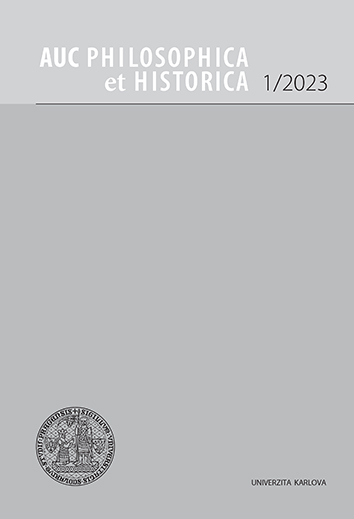AUC Philosophica et Historica je víceoborový akademický časopis zaměřený na humanitní a společenskovědné obory (filozofie, psychologie, pedagogika, sociologie, obecné, české a hospodářské dějiny, pomocné vědy historické a archivnictví, etnologie).
Časopis je indexován v databázích CEEOL, DOAJ a EBSCO.
AUC PHILOSOPHICA ET HISTORICA, Vol 1973 No 2 (1973), 9–26
Ke kritice metodologických principů funkcionalismu v sociologii
[A Critique of the Methodological Principles of Functionalism in Sociology]
Eduard Urbánek
DOI: https://doi.org/10.14712/24647055.2018.133
zveřejněno: 15. 01. 2018
Abstract
In recent times functionalism as a method and as a theory has become a subject for discussion and arguments with regard both to general methodology and to sociology. Views on functionalism differ and so we find very open adherents and severe critics of functionalist methods and theory- Functionalism was already reproached for its lack of unity and ambiguousness in the concept of function (Nagel, Merton), is criticized for teleological consequences and because it does not have the right to represent itself as an independent method since, in reality, it is only another expression for a sociological method and sociological analyses in general (Kingsley Davis). Functionalism is reproached for overlooking or underestimating changes; others point to its unjustified right to swallow or reject the causal method. On the other hand, T. Parsons, for instance, is among the authors who defend functionalism as a method and theory. Despite all the lack of uniformity in utilizing the term function, the concept of function in Parsons’ view is concentrated into two meanings. He regards function as a contribution of elements or items of a system working toward its maintenance, or as a variable that finds concrete expression in its conception of variable patterns. An analysis of Parsons’ conception of function and functionalism leads to conclusion on the tautological and teleological results of his functional analyses. Parsons’ conception of function applied to complex systems which contain large numbers of variables, objectively leads to the modernized version of the theory of many or more factors in explaining a social system. However, Parsons moves from the conception of many variables to the affirmation of the decisive role of institutionalized structures of cultural and value patterns. His original functionalistic concept of many variables leads objectively to cultural determinism in explaining society; this means that society is reduced to cultural and value patterns and explained from super-structural components. The West German author, N. Luhmann, attempts a more perfect concept of functionalism, devoid of its shortcomings. He introduces his concept of functional equivalents, rejecting the causal method. He endeavors to avoid a partisan, routine concept of functionalism. He brings the functional method to the concept of functional theory which is linked with his conceptions of open systems. Although his concept is really devoid of routine, partisan functionalism, yet it is evident that Luhmann does not know the dialectical concept of functionalism as a form of manifestation of causal continuity, which in Marxism itself is understood only as a moment and an element of the general continuity and concatenation of phenomena. However, the mutual effect of phenomena and elements in Marxism are subordinate to the basic structural unity and structural activities which permit the arrangement of elements and items of a system into a given hierarchical system of coordinated and superior and inferior constituents.
